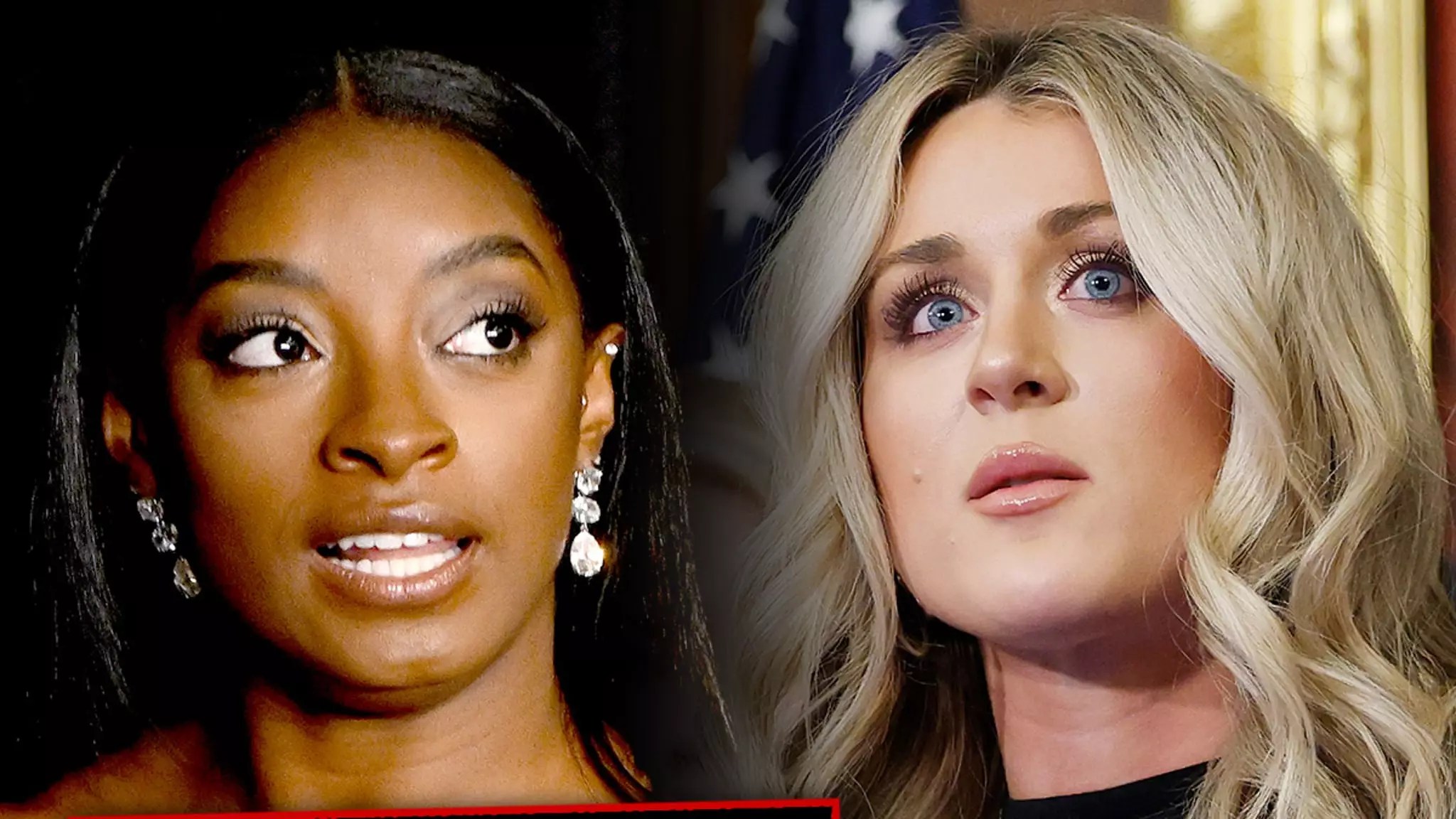In recent years, the landscape of sports has shifted significantly due to evolving societal views on gender identity. One of the most high-profile controversies unfolded on social media when Olympic icon Simone Biles publicly confronted Riley Gaines, a conservative activist, over remarks made about a transgender high school athlete. This exchange not only highlights the passionate divide over the inclusion of trans athletes in women’s sports but also raises larger questions about the way society perceives gender and fairness in competition.
At the heart of the dispute is the Minnesota State High School League’s decision to disable comments on a celebratory post featuring the Champlin Park High School baseball team, which won a state championship with a trans pitcher. Gaines, who has established herself as a vocal opponent of trans inclusion in sports, quickly seized on this decision to criticize the league. Her tweet mocked the situation, questioning the legitimacy of the championship win by labeling the star athlete involved as “a boy.” This particular comment did not go unnoticed by Biles, whose career, decorated with unmatched athletic achievements, has underscored the importance of pushing boundaries—both in sports and in societal norms.
Simone Biles: A voice for inclusion
In a bold response to Gaines’ tweet, Biles unleashed a critique that was both pointed and deeply personal. She accused Gaines of being a sore loser, a phrase that cut straight to the heart of competitive spirit in athletics. Biles interpreted Gaines’ sentiments as a reflection of bitterness in the face of change, suggesting that instead of resisting, athletes and advocates should direct their energies toward fostering inclusivity in sports. Her insistence on inclusivity is not just a political statement; it’s a call to action aimed at changing the traditional narrative that often sidelines marginalized groups.
Further in her rebuttal, Biles escalated her critique by framing Gaines as a bully who should engage with issues that truly pertain to her own experiences rather than leveraging her platform to demean others. These words resonate deeply, reinforcing the idea that athletes must not only compete but stand for the values of respect and equality—ideals that are critical in a world where diversity is becoming increasingly prevalent.
The resilience of differing perspectives
Gaines, undeterred by Biles’ fiery reprimand, responded with her own set of convictions. She framed the issue not as an insensitive attack on individual athletes but as a protective stance for women’s sports. With her trademark unapologetic tone, she asserted that it is not up to women to accommodate men in their sporting arenas. Gaines’ rhetoric, while controversial, reflects a significant sentiment among certain groups concerning the integrity of female competitions.
What becomes increasingly evident is that both women are stalwarts in their respective beliefs, fervently articulating their perspectives to wide audiences. Gaines took her arguments further, invoking Biles’ personal history of abuse to challenge the notion that trans inclusion is an unqualified good. She argued that Biles’ experiences with a male abuser should inform her stance on allowing biological males to compete alongside female athletes. This provocative juxtaposition not only seeks to undermine Biles’ position but also illustrates the deeply personal nature of this debate, spinning it into a wider conversation about safety, identity, and feminism in contemporary society.
Dialogue or discord: The future of sports?
The exchange exemplifies a broader societal rift regarding gender identity and athletic competition—one that has been amplified by social media as a platform for heated debates. While both Biles and Gaines hold steadfast to their respective views, the situation reveals the complexities of acknowledging and respecting all individuals in the realm of sports. The positions may not reconcile easily, but they serve to illustrate the passionate convictions held by advocates on both sides of this contentious issue.
As the conversation continues, it remains to be seen whether this clash over gender in athletics will lead to more constructive dialogue or deepen the divide among supporters and opponents of trans inclusion in sports. The debate is just beginning to unravel, and the implications for athletes, organizations, and society at large are profound as we navigate this new frontier in sportsmanship and identity.


Leave a Reply